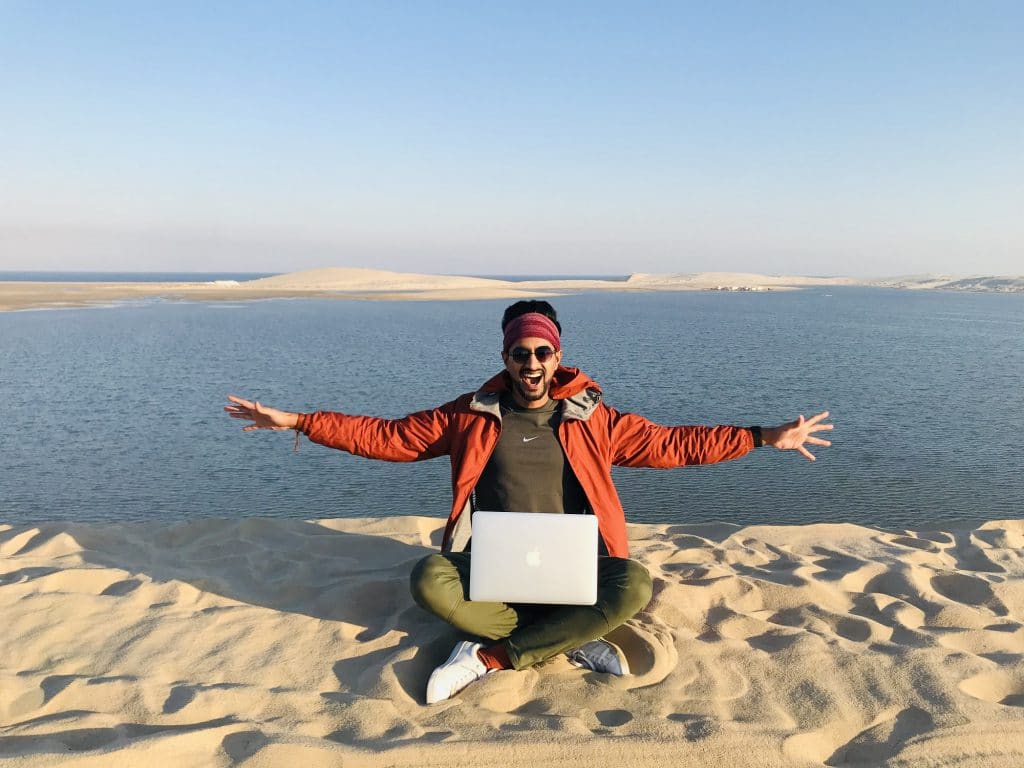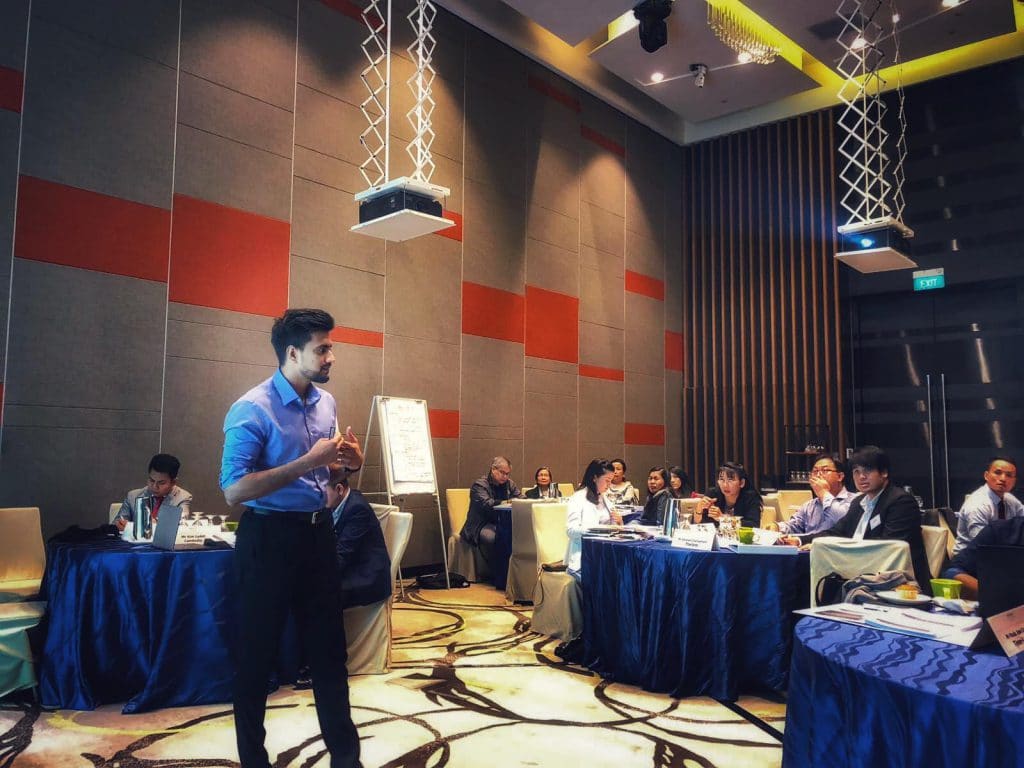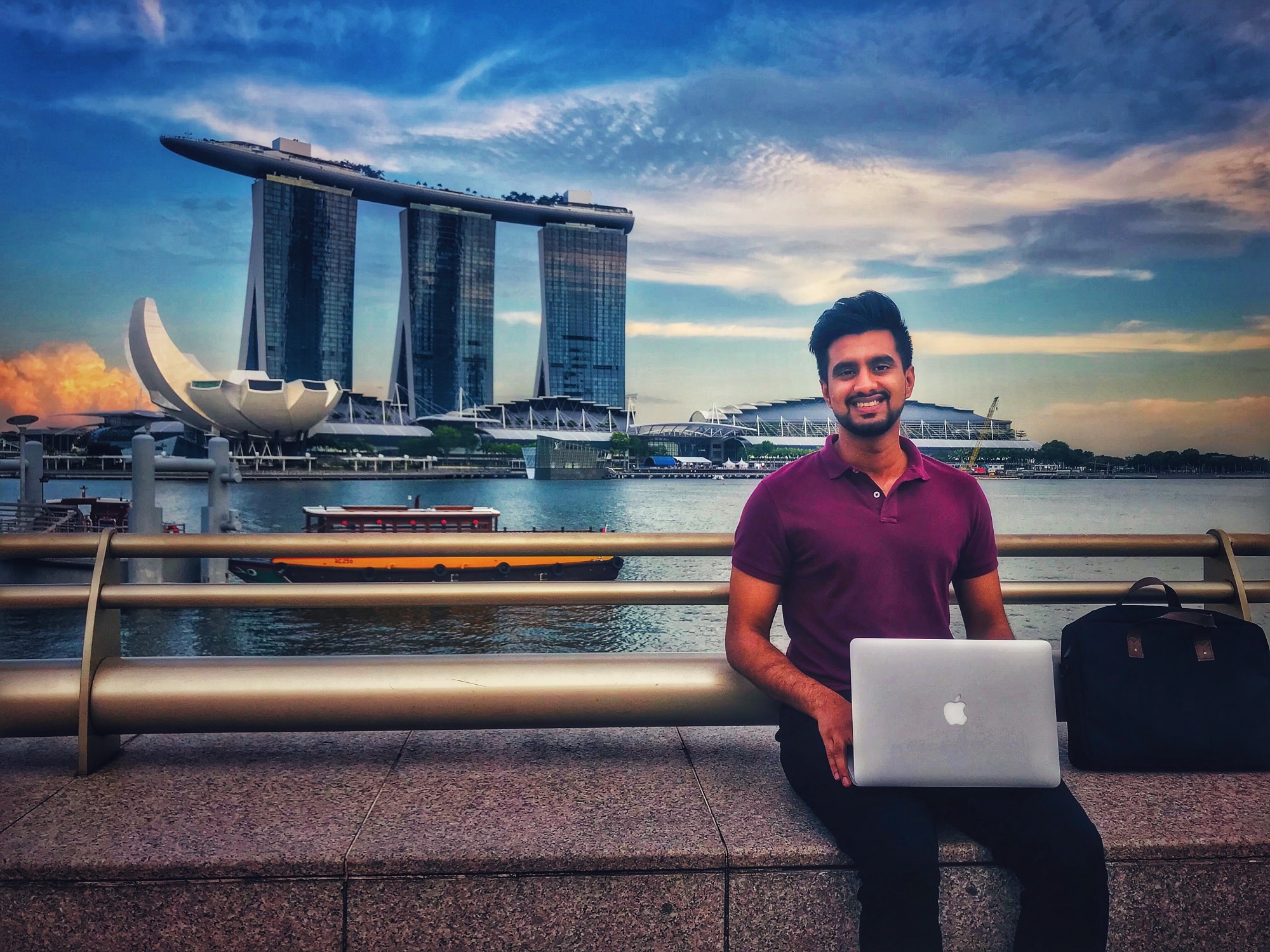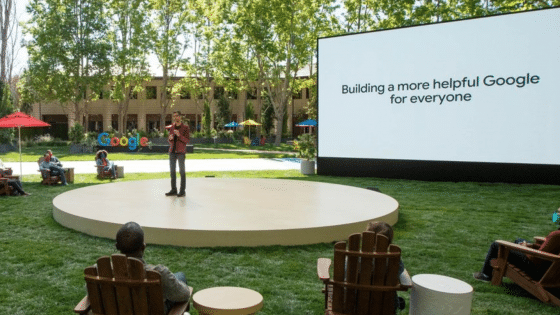The pandemic has pushed the idea of remote work much more acceptable and a new norm. With the availability and easy access to technology such as the Internet, cloud communications, cross sharing and collaborative applications and administrative online systems, it makes it easier for anyone to embrace work from anywhere. This remote work has also led to the rise of the digital nomad. While the lifestyle is not new, the new norm has given more reasons for people to work from anytime, anywhere.
The question is, what does the rise of digital nomad means to the new generation of workers and those who are used to a traditional work system? Marketing in Asia speaks to digital nomad, Waqas Hassn, the founder and owner of three internet brands AustraliaYours, 30-Day Experiment, & Digital Nomad Academy on the driving force behind his business and his secret of success.
1. Waqas, you are a Smart City Consultant, Internet Entrepreneur, and Tech Investor. Tell us all about yourself.
These sound like three different careers, but essentially, they are based on just one core interest of mine, i.e. understanding how technology shapes our lives.
I graduated from the National University of Singapore and got my first job as a foresight analyst in 2014 with the Lee Kwan Yew Center for Innovative Cities (LKYCIC). Singapore was planning to be a Smart City back then, and my role was to work with various parties and organisations to stimulate thinking and research on the critical issues of a smart city and explore how the the integrated use of technology can help provide solutions on how we live in the future
During those years, the exchanges I had with various people and research gave me a deeper understanding on how technologies can shape our psychological preference. I also found out how social media affects the behavioural patterns of our consumers, such as why people prefer riding with Uber over riding on taxis or owning cars.
As I progressed in my career, I started investing in tech companies that showed potential of how their business solutions can become a core part of our lifestyle in the future. In 2017, I left LKYCIC and started training other ASEAN countries’ government officials in their own smart cities planning. I also moved my base to Australia and started my own internet companies with a focus on content creation and online education.
Today, in 2020, all these careers have compounded and I spend 200-250 days a year on average travelling (giving talks, consulting governments, exploring exotic locations) and rest of the days in my home office in Melbourne.

2. What is the idea or concept behind your 3 internet brands?
AustraliaYours started as my own journey of moving to Australia. I blogged about how I build my network here and giving insights to other such as finding place to rent, how to open a bank account, how to subscribe to a mobile plan and etc. The blog was a hit and it got a lot of traction because there are hundreds of thousands of people who make the journey like mine to Australia every year and found the information useful. Eventually, I turned my blog into a full resource that has everything one needs to move to Australia and make a life here – from online courses to learning English to Ultimate Guides in building networking, finding jobs, or getting into higher education. Today, it is the largest blog in its category in Australia.
The idea behind 30-Day Experiment is based on my life’s philosophy. I believe we can learn any skill, develop any habit, or achieve any short-term target in 30 Days. I call these Experiments. I put myself through experiments and create self-help content around it. It started as a blog, but it is mostly on Instagram where I create personal development content. The most famous one is called OneMinuteShow where I share one lesson, strategy, life hack, or anything of value in 1-minute. It has more than 100 episodes by now and is currently in its season 2.
Digital Nomad Academy is my latest internet brand where I teach people every skill they need to build their own laptop lifestyles. I am living my own independent lifestyle since 2017. There are some core skills that have helped shaped my life such as embarking on a content creation journey, speaking, and digital marketing, building online business, coaching, designing and video editing. Through masterclasses and online courses, I teach these skills to my audience at Digital Nomad Academy.
3. We are aware how remote work is now a norm for many of us. In your opinion, how are organisations benefiting from this new mode of working?
The single biggest advantage this norm has brought, in my opinion, is the shift from valuing time and presence to valuing output. Previously, based on my own career experience, is that, employers used to value time and presence of their employees a lot. An employee who comes in at 8am and doesn’t leave until 7pm or who never misses a day or calls in sick used to be valued as high performers. But now, remote work has shifted scales in favour of valuing output more than time and presence.
Now, employers are most happy with an employee who is self-motivated and delivers highest quality output. They have no idea if the employee has worked on that output for just 2 hours or 8 hours, and if she has worked from a café or in-bed.
4. What are some of the challenges and benefits you see with the rise of a generation of digital nomads?
The benefits are immense. The biggest one in my opinion is that the playing field is fair now. Anyone who is talented (creative, smart, intelligent) has unlimited opportunities of growth in this world. The classic corporate culture had evolved over a hundred years with massive inefficiencies built-in the system. Talent wasn’t always valued as highly as discipline of showing up in office every day for longest hours possible.
The second benefit I see is the return of work-life balance in people. Somewhere in the last two decades, we have all but forgotten the idea of living life to the fullest. While technology made our lives more connected and fast paced, unfortunately, our working hours just increased. The world became globalised and competition increased. Now, with work-from-anywhere lifestyle, I see people travelling more, enjoying coffees more, meeting new people more, and overall living more.
The challenge is that most people aren’t equipped yet to plan their own calendars, to self-motivate themselves, and in general design their own life. So these skills of productivity, self-management, or self-motivation need to be taught as well.
5. What are the characteristics of digital nomads and why is digital nomadism so popular?
Digital nomadism breaks the 4 constraints the work culture puts on us. These are:
Time constraint – why do I have to work 9-6 every day?
Location constraint – why do I have to live in the same room, in the same city, for years at a time?
Authority constraint – Why is it that my boss designs my life?
Financial constraint – why do I get 10% raise every year when I want to earn without any limit?
Every millennial or Gen Z person I meet question these constraints. They don’t want to live like their parents did. They want to live a life similar to those people they follow on Instagram and are inspired by. Digital Nomadism breaks these 4 constraints and help people build their own laptop lifestyles to work-from-anywhere.
6. How do you market your business and what tactics have been most successful?
I have always believed in content creation as the best form of marketing. I don’t market my brands with funny, viral, or funky marketing campaigns. Instead, I create a lot of education value-adding content and I use the power of social media to place it in front of as many people as possible. Over time, this strategy helps me build what I can fans-for-life. These are people who follow me on socials, join my email lists, and eventually become my customers.

7. Do you believe there in a formula to becoming a successful entrepreneur?
There is. And it is definitely not to focus on what’s the next big thing out there. I have been a victim of it when as a final year university student I focused on developing a crowdfunding start-up because it was supposed to be the next big cool thing back then. Six months into the journey, I realised I am not even interested in crowdfunding myself.
The formula that worked for me since 2017 was to find out what interest me that I end up doing in the evenings and weekends, and build a business model around it so other people can also benefit from it in some way. I did it through online courses and masterclasses, but others like me have built apps, service-based businesses, and digital or physical products around their own interests. If you are a user of your product or service, millions of other people in the world will be.
8.What is your favourite aspect of being an internet entrepreneur?
I will say it’s the “internet” in the internet entrepreneur. Internet has given me complete location independence. I have worked on my brands at -20 degrees near the North Pole, and I’ve worked on my brands while on a safari in desserts of Arabia. This lifestyle is my favourite part of doing what I do.
9. What business-related book has inspired you the most?
The first book that inspired me most was 4-Hour Workweek by Tim Ferriss. This was the first time I was even introduced to the idea of building my own location independent business that allows me to travel the world. Later in the journey, Nike’s founder Phil Knight’s Shoe Dog became the second book that inspired me immensely.
10. If you had a magic stick, which are the three things you would change in the world?
I’d say outright first that I’m immensely in love with the world – with all its chaos and imperfections. There is beauty and magic in it that I wouldn’t want to change. Having said that, I don’t mind turning up a notch on things that progresses human race forward into a more connected and considerate society. The three would be: 1) Plant-based meat (such as Beyond Meat) affordable and available to everyone, 2) complete ban on cutting off trees for human consumption (believe it or not, this ban will spark innovation in many industries as substitutes will pop up), and 3) access to affordable internet for everyone.
Kartina is Marketing In Asia's Editor for Op-Ed. She is also the Founder of Tin Communications. A media specialist with over 20 years of experience in both public and private sectors, she helps SMEs grow their business through strategic media and marketing plans. Connect with her on LinkedIn. You may also reach her by email at kartina@localhost.


















